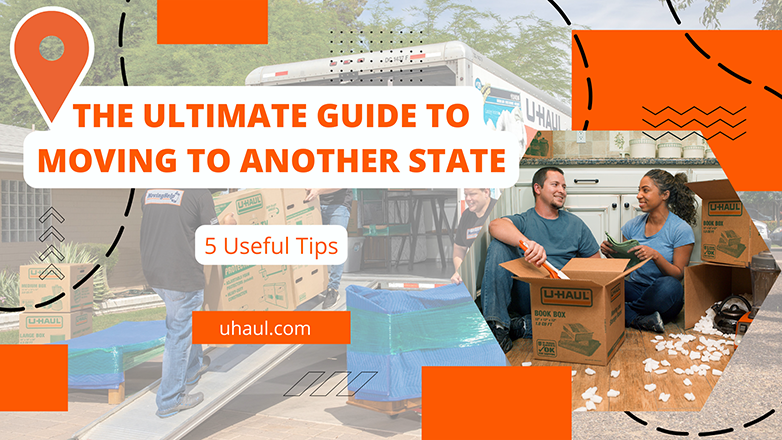Double towing, also known as tandem towing, is not allowed in Florida, including trailers and recreational vehicles (RVs) being towed by another RV. In Florida, it is prohibited to engage in double towing, where one vehicle is towing another vehicle or trailer.
This includes scenarios where trailers and RVs are being towed by other RVs. The state has set this regulation to ensure safety on the roads and minimize the risk of accidents caused by excessive length and instability of combined vehicles.
Therefore, if you plan to tow a trailer or RV in Florida, be aware that you cannot engage in double towing. It is essential to adhere to these guidelines to avoid fines and potential hazards on the road.

Current Regulations
In Florida, double towing is allowed under certain circumstances, but it is essential to be aware of the state laws and regulations to avoid any legal hassles. When it comes to double towing, Florida has specific guidelines in place to ensure safety on the roads and highways.
Firstly, it is important to note that not all vehicles are eligible for double towing. According to Florida law, only recreational vehicles (RVs) and fifth-wheel trailers are permitted to tow a second trailer, commonly referred to as “towing doubles.”
When it comes to vehicle requirements for double towing in Florida, there are a few key regulations that vehicle owners must adhere to:
- The maximum length of the combined vehicles, including the towed unit(s), must not exceed 65 feet. It is crucial to ensure that the total length remains within this limit in order to comply with Florida state laws.
- The RV or fifth-wheel trailer must be equipped with a hitch that can safely and securely connect the trailers. It is vital to use a hitch that meets the necessary weight and safety requirements to prevent accidents and ensure a stable connection.
- All trailers in the double towing configuration must be registered and properly licensed, displaying the appropriate license plates issued by the Department of Highway Safety and Motor Vehicles (DHSMV).
- Proper lighting and reflectors should be installed on all trailers, ensuring visibility and compliance with traffic regulations. This includes brake lights, turn signals, and tail lights that are operational and visible from a distance.
By meeting these vehicle requirements, RV and fifth-wheel trailer owners can legally engage in double towing in Florida. It is crucial to emphasize the importance of adhering to these regulations to ensure the safety of everyone on the roads.
Double Towing Restrictions
When it comes to towing multiple trailers behind a single vehicle, it is important to be aware of the double towing restrictions in Florida. These restrictions are in place to ensure safety on the roads and to prevent accidents that can occur due to excessive length or difficulties in maneuvering. In this article, we will explore the maximum length allowed for double towing in Florida, as well as the types of vehicles that are permitted for this practice.
Maximum Length Allowed
In Florida, the maximum length allowed for double towing is set at 65 feet. This includes the length of the towing vehicle and both the trailers combined. It is crucial to adhere to this limit to avoid any legal complications and to prevent any potential hazards on the road. Exceeding this maximum length can lead to fines, penalties, and even accidents, especially in situations where the driver has difficulty maneuvering the extended combination of vehicles.
Allowed Vehicles
Not all vehicles are allowed to engage in double towing in Florida. Only certain types of vehicles qualify for this practice. Here are the types of vehicles that are permitted to tow two trailers simultaneously:
- Recreational Vehicles (RVs): RVs are popular choices for double towing, as they are designed to provide adequate power and stability to tow multiple trailers. However, it is important to ensure that the combination of trailers does not exceed the maximum length limit mentioned earlier.
- Trucks: Certain trucks, such as pickup trucks and heavy-duty trucks, are equipped with the necessary power and towing capabilities to handle double towing. These vehicles are commonly used for recreational purposes or for transporting goods from one location to another.
- Commercial and Utility Vehicles: Some commercial vehicles and utility vehicles may also be allowed to double tow, depending on the specific regulations set by the state of Florida. However, it is crucial for drivers operating these vehicles to familiarize themselves with any additional restrictions or requirements that may apply.
It is important to note that when engaging in double towing, regardless of the type of vehicle, drivers must exercise caution and ensure they are experienced and skilled enough to safely maneuver their vehicle combination. Furthermore, drivers should always be aware of their surroundings, maintain proper speeds, and leave sufficient space for braking and turning.
Permit And Licensing
When it comes to engaging in double towing in Florida, understanding the permit and licensing requirements is critical. From obtaining special permits to ensuring the appropriate driver’s license, it’s essential to be informed about the legalities surrounding double towing in the state of Florida.
Special Permits
Special permits are a necessity for double towing in Florida. Securing the appropriate permits is paramount to ensure compliance with state regulations. It’s important to obtain the necessary documentation and approvals before embarking on any double towing endeavors. Failure to do so can result in legal consequences and potential road hazards.
Driver’s License
Having the proper driver’s license is imperative for engaging in double towing in Florida. Before attempting to tow multiple trailers, individuals must possess the specific driver’s license classification required by the state. It’s crucial to adhere to these licensing requirements to operate legally and safely on the road.
Safety And Best Practices
Insurance Considerations
When double towing in Florida, it’s crucial to understand the insurance considerations to ensure you are adequately covered in case of any incidents.
Liability Coverage
- Liability coverage is essential when double towing in Florida.
- It provides financial protection in case of an accident or damage.
- Verify liability limits with your insurance provider to meet legal requirements.
Additional Policies
- Consider additional policies to enhance your coverage.
- Comprehensive and collision coverage can protect your vehicles in various situations.
- Uninsured motorist coverage is beneficial in case the other party is at fault but uninsured.

Credit: theadventureportal.com
Alternative Transportation Options
When it comes to transporting goods and equipment in Florida, double towing provides a convenient solution. However, there are alternative transportation options to consider if double towing isn’t suitable for your needs. Whether it’s for recreational purposes or business requirements, exploring alternative options can ensure a smooth and efficient transportation experience.
Rental Services
Renting a vehicle can be a practical alternative to double towing. Many rental companies in Florida offer a wide selection of vehicles, including trucks and trailers, which can accommodate various types of cargo. This option allows you to choose a vehicle tailored to your specific transportation needs. Moreover, rental services often provide insurance coverage for the rented vehicle, adding an extra layer of security to the transportation process.
Professional Transport
Opting for professional transport services can provide a hassle-free solution for transporting goods in Florida. Professional transport companies have the expertise and equipment to handle diverse cargo requirements. Whether you need specialized transportation for large equipment or delicate goods, professional transport can cater to your specific needs. Additionally, utilizing professional transport services can save time and effort as the transportation process is managed by experienced professionals.
Faqs And Common Misconceptions
Double towing in Florida is a topic that often raises questions and tends to be surrounded by various misconceptions. In this section, we will clarify some of the frequently asked questions and debunk common myths to provide you with accurate information. So, let’s dive in and address some of the most important aspects of double towing in the Sunshine State.
Permit Costs
One of the most common questions people have regarding double towing in Florida is about the permit costs involved. Many erroneously assume that obtaining a permit to double tow comes at a steep price. However, the actual cost is quite reasonable, with permits typically ranging from $25 to $50, depending on the duration.
It’s important to keep in mind that these permit costs are subject to change, so it’s always a good idea to check the latest fees with the Florida Department of Transportation (FDOT) or consult with your local DMV.
Off-limit Areas
Another misconception that often arises is that double towing is entirely off-limits in Florida. While there are some restrictions, it’s not true that you can’t double tow anywhere within the state. Certain areas, however, do have restrictions in place to ensure safety and reduce congestion on specific roads.
To determine the off-limit areas for double towing in Florida, it’s crucial to refer to the official guidelines provided by the FDOT. These guidelines specify the roads or sections where double towing is prohibited or has limitations, such as weight restrictions or specified allowable towables.
Always make sure to consult the most up-to-date information from the appropriate authorities to ensure compliance and a smooth double towing experience in Florida.

Credit: www.uhaul.com
Conclusion And Resources
Discover the regulations for double towing in Florida and access helpful resources to ensure compliance. Learn about the guidelines and restrictions in place to safely navigate double towing on the state’s roads. Gain access to the required permits and information necessary for a trouble-free towing experience.
Summary Of Guidelines
Summarizing the guidelines for double towing in Florida, it is essential to adhere to certain regulations for safe and legal towing. Firstly, ensure that the combined length of both the towing vehicle and the trailer being towed does not exceed 65 feet. Additionally, make sure that the weight of the towed vehicle does not exceed the maximum limit set by the manufacturer of the towing vehicle.
- Combined length of towing vehicle and trailer should not exceed 65 feet.
- The weight of the towed vehicle should not exceed the maximum limit set by the towing vehicle manufacturer.
- Both the towing vehicle and the trailer need to be equipped with functioning brake and signal lights.
- Double towing is allowed only on certain roads designated by the Florida Department of Transportation.
- Both the towing vehicle and the trailer should have valid and properly displayed license plates.
Relevant Agencies
When it comes to double towing in Florida, it is important to be aware of the relevant agencies responsible for regulating and enforcing the towing guidelines. The Florida Department of Transportation (FDOT) oversees the designation of roads where double towing is allowed. They provide the necessary information about the approved routes on their official website www.fdot.gov.
In addition, the Florida Highway Patrol (FHP) plays a crucial role in ensuring compliance with towing regulations. They have the authority to conduct inspections and issue citations for violations. It is advisable to visit their website www.flhsmv.gov/florida-highway-patrol for any updates or clarifications regarding the towing rules.
By partnering with these agencies, Florida aims to enhance road safety and prevent any mishaps caused by improper double towing practices. Always stay informed about the latest guidelines and amendments to ensure a hassle-free towing experience in the Sunshine State.

Credit: www.facebook.com
Frequently Asked Questions Of Double Towing In Florida
Can I Double Tow My Trailer In Florida?
Yes, double towing is allowed in Florida, but certain restrictions apply. The total length of the vehicles in combination must not exceed 65 feet, and a special endorsement on the driver’s license may be required.
What Are The Safety Regulations For Double Towing?
When double towing in Florida, ensure all trailers have working lights, proper hitch connections, and secure cargo. Proper weight distribution is crucial to maintain stability while driving, so always adhere to weight limits and secure your loads.
Do I Need A Special License To Double Tow In Florida?
To double tow in Florida, you may need to obtain a specific endorsement on your driver’s license. This endorsement typically involves a written test and may require a demonstration of proficiency in handling multiple trailers.
Are Double Towing Laws Different For Out-of-state Visitors?
Out-of-state visitors double towing in Florida must follow the state’s regulations, including length limits and license requirements. It’s crucial to research and comply with Florida’s specific double towing laws, even if they differ from your home state.
Conclusion
Double towing in Florida comes with specific regulations and requirements that must be followed. Understanding the laws and safety precautions is essential for a smooth and hassle-free towing experience. By adhering to the guidelines, drivers can ensure compliance and safety on the road while towing multiple trailers in the state of Florida.